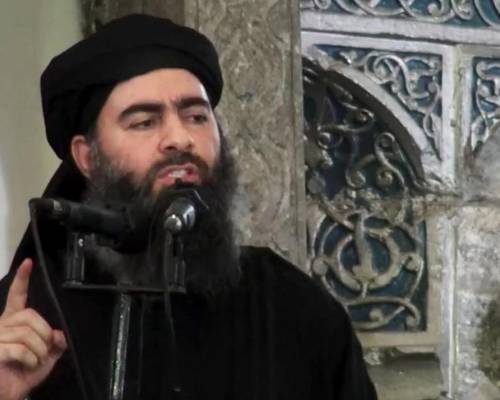Daesh (IS, ISIS, ISIL) is more than a terrorist organization
There was an important subliminal message in Friday’s dual attacks in Kuwait and Tunis: Daesh, is much more than a terrorist organization wedged between Syria and Iraq; rather it’s a cross-border dogma that inspires and motivates people, mostly youth, all over the world.
Much has been written about the appeal of Daesh and its surprising ability to recruit and induce, not only through fringe mosques in Europe and elsewhere, but by using and adapting to the most sophisticated means of modern communication.
We know very little about the internal structure of this organization, which has spread at an alarming rate in the past three years. But we know that its ideology appeals to other extremist organizations and groups worldwide and through smaller cells in Europe and North America.
Expert on Islamist movements, Dr Mohammad Abu Rumman, noticed that the young Tunisian who carried out the attack on Bardo museum last March and the other who killed tourists in Sousse last week came from middle-class families. He pointed to the fact that most of the Tunisian youth who had joined Daesh in Syria had university education.
In his view, and that of others, what all of these young people have in common is a deep belief in the “model” that Daesh, and other terrorist groups close to it, propose to build. That model seeks to implement Islamic law in full so that a more equitable society can be created on earth. This utopian Islamic state will cancel political borders and restore the past glory of the caliphate. But in addition to adopting such beliefs, others go as far as considering Daesh the only viable force to repulse the Iranian expansion into the Middle East.
They see themselves as soldiers defending the Sunni world against heretics, apostates and infidels.
What is dangerous about such beliefs is that they are shared by millions of Muslims, who while they may not be ready to join Daesh and become militants themselves, sympathize with its ideology and objectives. The restoration of caliphate is a romantic dream for a majority of Muslims, who believe it is the answer to today’s complex political, social, cultural and economic challenges.
Even some scholars have gone out of their way to find excuses for Daesh atrocities and its bloody methods. One such apologist told me recently that Daesh is implementing true Islam in times of war. In his view the Muslim world is under attack by the West and the only way to respond is to adopt extreme measures to fend off the aggressors and pave the way for the restoration of the caliphate. People like this expert refute the hypothesis that supporters of Daesh are mostly radicalized Muslims.
The doctrine that Daesh has adopted is partially or completely supported by Muslims, or recent converts, who belong to mainstream Islam. The perpetrator of the attack in Sousse had no prior criminal record and so are many young recruits who decided to leave their home and join Daesh.
There are many visible and hidden reasons behind the appeal of Daesh to young men and women all over the world. Marginalized youth find a purpose for their lives by joining the militant group. It empowers them, as they believe they are fighting for a noble cause. But there are political and social causes as well, all of which require careful study if the phenomenon is to be explained and confronted.
The world is engaged in a war against Daesh. But the franchise is expanding quickly and new battlefronts are emerging in Muslim countries as well as in Europe and North America. The most immediate danger comes from lone wolf attackers, who may not be directly tied to Daesh, but carry out their attacks in its name.
These secondary battlefronts will soon become primary ones. Daesh will eventually be defeated in Iraq and Syria, provided that countries that support it out of sympathy or for political expediency realize that they will eventually become targets as well.
But the longest confrontation will take place within Muslim societies where the romantic appeal of the Islamic State “model” attracts even those who are classified as moderates.
The solution will be to provide an alternative model, one that does not contradict with universal Islamic values, but achieves the objectives of social justice, equal opportunities and empowerment for members of society. Making the transition will not be easy and it will require long-term planning that will reflect on education especially for future generations.
To defeat the ideology that Daesh espouses, change must begin at home; in the heart of the Muslim world, and we must brace ourselves for a long and tiring battle of ideas.
With thanks to OSAMA AL SHARIF of http://www.arabnews.com/ for this article.
If you are travelling to the Middle East or North Africa, please contact us for travel assistance, training and advice [email protected]


